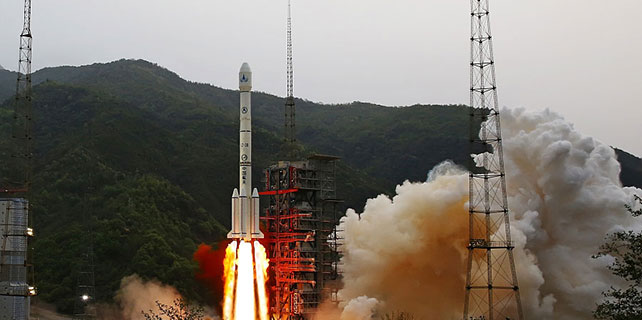Currency manipulation not an issue, but how about trade deficit?
US President Donald Trump sent a positive signal to the China-US economic and trade relationship last week when he said that China was not manipulating its currency. On Friday, the US Treasury Department released its semiannual report to the Congress to reiterate that conclusion.
In the report, the Treasury finds none of the six US trading partners on the monitored list — the Chinese mainland, Germany, Japan, South Korea, Taiwan and Switzerland — have been manipulating their currencies in the previous months.
While the Treasury did not name China a currency manipulator, its assessment on China was longer and harsher than its last report released in October 2016.
The new report described China as engaging in "persistent, large-scale, one-way foreign exchange intervention" in previous years. It said the distortion imposed significant and long-lasting hardship on US workers and companies.
The report also accused China of restricting market access and investment, and called China's goods trade surplus with the US, at $347 billion in 2016, as by far the largest among any of the US major trading partners.
However, the report said that China's multilateral external position has undergone greater adjustment in recent years. China's current account surplus had decreased most recently from 2.8 percent of GDP in 2015 to 1.8 percent of GDP in 2016.
The report stated that China's recent intervention in foreign exchange markets has sought to prevent a rapid RMB depreciation that would have negative consequences for the US, China and the global economy.
The US Treasury said it will be scrutinizing China's trade and currency practices, especially in light of the large bilateral trade surplus that China has with the US.
While many still remember Trump's campaign pledge of naming China a currency manipulator on his first day in office, most US economists and Treasury officials don't agree with the label.
They argue that China has in recent years been propping up its currency to prevent RMB depreciation, rather than appreciation, thereby helping US competitiveness and doing the US a big favor.
On Sunday morning, Trump tweeted: "Why would I call China a currency manipulator when they are working with us on the North Korean problem? We will see what happens!"
The fact is that these two things are not linked, and what is clear to economists is that China is not manipulating its currency.
Larry Summers, former US treasury secretary, admitted that the US government has been wrong all these years trying to push for the appreciation of renminbi, or yuan, while market forces are pushing it down.
Unlike years ago, China's currency policy has also become less of an issue on Capitol Hill in recent years.
Though the latest Treasury report highlighted the US bilateral trade deficit with China as an issue, most US mainstream economists have dismissed such a concern as a wrong approach. Economists such as Caroline Freund of the Peterson Institute of International Economics and Yukon Huang of the Carnegie Endowment for International Peace argue that the bilateral trade deficit does not matter.
They say that the trade deficit should not be an indicator of the health of the economy because the US trade deficit actually went down during the financial crisis in 2009 as well as during the Great Recession.
Economists such as Stephen Roach, former chief economist for Morgan Stanley, believes it is the low personal savings rate in the US along with Americans living beyond their means that led to the US trade deficit.
For Freund, who had previously worked at the World Bank, the International Monetary Fund and the Federal Reserve Board, the trade deficit has more to do with US domestic fiscal policy rather than trade policy with other countries.
It also has to do with the method of calculation. A typical example raised is the Apple iPhone assembled in China, with technology and components from all over the world, including mostly from the US.
While China makes only about $15 from each iPhone, each unit is counted as some $600 in China's exports to the US. That had made the total bilateral trade imbalance grow dramatically since 2001, when Japan, South Korea, Taiwan and Hong Kong relocated many assembly plants to the Chinese mainland.
If the US does not buy from China, it will disrupt the Asian supply chains, of which the US is a part. US consumers are set to pay higher prices when substitute imports come from other parts of the world.
While the Trump administration now seems to be seeing eye to eye with economists on China's currency policy, no one is sure if it will change its attitude on the bilateral trade deficit.
Contact the writer at chenweihua@chinadailysua.com
















